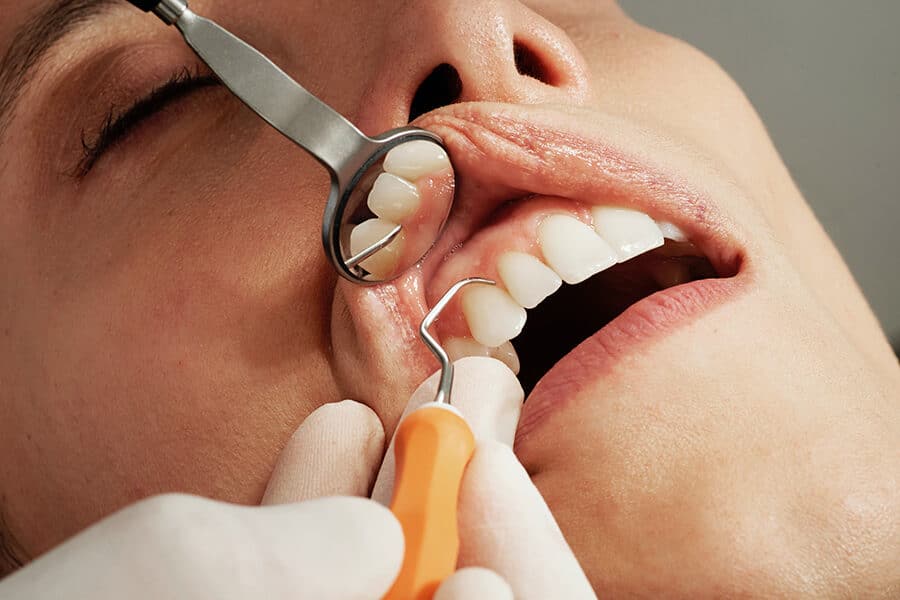Why Gums Are Important and What Is Periodontitis?
When it comes to your oral health it is integral to be paying attention to your gums just as much as your teeth. Keeping your gums healthy means your teeth are able to be tightly anchored and roots properly secured. Periodontitis is another name for gum disease. It is an infection within the area our gums reside that damages the soft tissue of your gums.
Symptoms and Signs Of Periodontitis
Some major symptoms and signs of periodontitis are usually easy to distinguish.
- Receding gums – One of the most distinguishing characteristics of periodontitis are receding gums and deep pockets between your gums and teeth.
- Swollen and/or red or purple-tinted gums – Swollen and discolored gums usually mean that something is amiss. Another telling sign could be tender and easily bleeding gums especially coupled with the earlier characteristics.
- Bad Breath – Everyone has bad breath every once in a while, but if you have a lingering issue with bad breath even after brushing the possibility of periodontitis is certainly there.
- Other Signs – Other signs include painful chewing, new gaps in your teeth forming, loose teeth, and a change in the way you bite.
How Can Periodontitis Affect Me?
When you do not get proper treatment while you have this disease the results can be extremely detrimental in a variety of ways. First and foremost, since periodontitis damages the soft tissue of your gums, it leads to the destruction of the bones it’s supposed to protect. This is a snowball effect, once your tissue and bones start to decompose, your teeth have a much higher possibility of loosening and even potentially falling out.
The disease doesn’t always stop with your oral health. If the bacteria gets out of control, it can spread into your bloodstream through the weakened tissue. Issues including respiratory disease, heart disease, stroke, and increased issues with diabetes can all be linked from periodontal disease.
What To Do If I Have Periodontitis
It is important to keep up a routine schedule with your dentist, and do not be afraid to seek sooner care if you feel that periodontitis is developing. The earlier you are able to catch a periodontal disease, the easier and earlier you will be able to get rid of it. Your dentist will be able to provide a personalized treatment best suited for your individual needs.
How Can I Prevent Periodontitis?
As always, brushing twice a day and flossing at least once a day is an efficient way to stay clean. Regular dental visits are always a must as well, since the professional routine cleanings performed in the dental office will be able to target pesky spots you most likely are unable to reach. There are also a variety of risk factors including obesity, smoking, and teeth clenching/grinding that increase the possibility of periodontitis occurring.
If you don’t have an appointment scheduled, call your dentist today to be sure to get the care you need for a healthy and happy smile.
